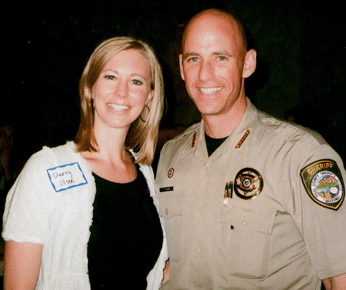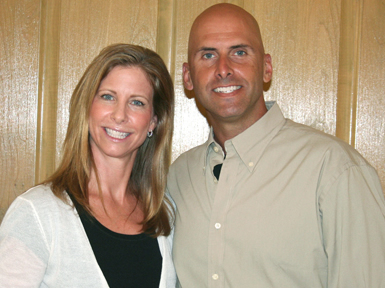 AUGUST 18, 2010
AUGUST 18, 2010
As the worm turns
![]()
The main characters in the story I am about to relate – bark beetles, white flies, aphids and even a gopher – could be stars of a sequel to the Pixar movie, "A Bug's Life." The only thing is: There's nothing to laugh about here, and unfortunately the tale is real and playing out in Sacramento County Superior Court instead of a Disney venue.
The protagonist is George Hahn, an entrepreneur from Cardiff by the Sea, California, just north of San Diego. The antagonist is the California Department of Pesticide Regulation (DPR), a branch of California Environmental Protection Agency. The script is a cross between science fiction and a horror film.
The setting is down-to-earth, literally. Mr. Hahn's company, California Vermiculture, is an operation that bags and sells worm droppings. Known in the industry as worm castings, the product is called Worm Gold. It is an organic, non-toxic registered fertilizer that makes plants healthier and stronger. It also helps them create an enzyme (chitinase) that repels insects and other pests.
The state agency began investigating Hahn in 2004 after reading a front-page newspaper article about his success in treating the pine beetles that were ravaging trees in the San Bernardino Mountains. He promoted his product as having pest repellant qualities, but never as a pesticide since it only repelled bugs instead of killing them. Veda Federighi, the external affairs director at DPR, said that the EPA defines pesticide as anything that prevents, destroys, repels or mitigates pests. Talk about mission creep.
Had Mr. Hahn succumbed to her orders, he would have had to register Worm Gold with the federal and state governments and was told that could take between 7 and 10 years and cost as much as $3 million. Since he did not do that and was not sufficiently cowed, the DPR fined Hahn $100,000.
The good guys in this scenario are the folks at Pacific Legal Foundation, a watchdog organization that champions limited government, free enterprise and property rights. (You know, all those good things that every liberal politician pretends to stand for whenever campaigning for election.) Timothy Sandefur is representing Hahn in his lawsuit against DPR for their out-of-control position on worm droppings. "My products are already registered as fertilizers," Hahn notes, "so how can they be toxic?" He also wondered when the DPR would start targeting redwood producers, since redwood is marketed and sold every day to repel termites.
Pardon my pun, but that opens up another whole can of worms. Two of DPR's bureaucrats admitted in a hearing in May that even water, which is used to wash aphids off roses and other plants, would qualify as a pesticide under EPA's definition. So would the pest-resistant potatoes and celery being developed by the U.S. Department of Agriculture.
Hahn's lawsuit relies in part on a 1943 case in which DPR claimed that marigolds and other plants that smell bad to gophers were also pesticides. Since insanity hadn't had time to blossom here until the 60s, the state court rejected that argument and ruled that the marigold was not injurious to the gopher but that the odor was so obnoxious to his sense of smell as to discourage his presence in the immediate vicinity. In other words, a bad odor is not a toxin. In the same way, Worm Gold encourages plants to produce more of its natural enzyme that smells bad to insects and other pests.
But California's DPR couldn't give a worm's poop about that precedent and ruled that there was "no exemption for nontoxic and nonlethal pesticides." In a world where the meanings of words matter, a nonlethal pesticide is still an oxymoron. The only pests I want repelled are those nesting in the EPA.



